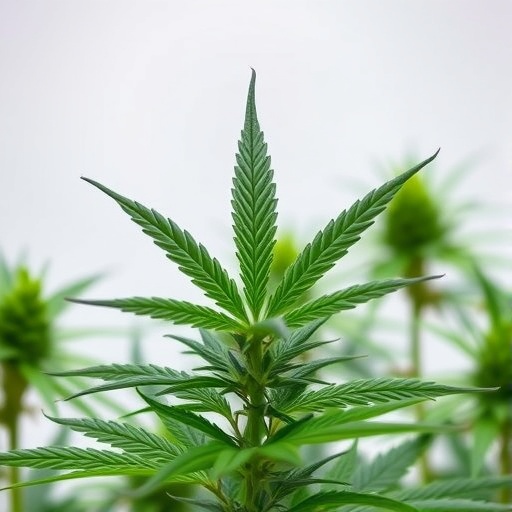- Baked In
- Posts
- 🥨 The New York Market Is Shining Bright Green
🥨 The New York Market Is Shining Bright Green
GM Everyone,
The Epstein Files are getting released. Cannabis next?
💸 The Tape
It’s official: New York’s cannabis market has reached its “half-a-thousand” moment. Regulators are celebrating the opening of the 500th licensed adult-use dispensary, a symbolic milestone for a state that, just two years ago, couldn’t open a single legal storefront without a lawsuit attached.
The newest addition, Green Comfort Dispensary in Rochester, marks the latest sign that the Empire State’s experiment in equity-driven legalization is finally finding its footing. Since sales began in late 2022, New Yorkers have spent a cool $2.3 billion on regulated cannabis—supporting roughly 25,000 jobs statewide. Not bad for a market that was once accused of moving at the pace of a Hudson River ferry stuck in fog.
Felicia A.B. Reid, acting executive director of the Office of Cannabis Management (OCM), said the expanding retail map “reflects a market that’s maturing with purpose.” In other words, after a messy rollout, New York may finally be turning the corner from litigation headlines to revenue headlines.
The numbers back her up: OCM has now approved 1,949 total adult-use business licenses spanning cultivators, manufacturers, and retailers. Legal shops are open in 51 counties and 161 municipalities, and regulators say 56 percent of all licenses have gone to social-equity applicants—one of the highest ratios in the U.S.
Money from taxes and license fees is already flowing: $5 million toward community reinvestment, another $5 million in grants for conditional licensees, and $2.6 million for technical assistance programs. “Equity isn’t just a principle on paper—it’s a measurable outcome,” said Simone Washington, OCM’s chief equity officer.
Still, it wouldn’t be New York cannabis without a subplot. More than 100 provisional licensees are now tangled in a zoning glitch—located too close to schools or houses of worship under current law. Governor Kathy Hochul has pledged to fix the issue legislatively, and OCM extended all provisional license renewals through December 31, 2026 to buy time.
Despite the hiccups, the milestone signals undeniable momentum. As CCB chair Jessica Garcia put it, “Every licensed storefront represents a vetted operator, tested products, and a community choosing safer cannabis.” Translation: the underground market may not vanish overnight, but at 500 dispensaries strong, New York’s legal sector is finally starting to feel like an industry rather than an experiment.
📈 Dog Walkers
Virginia Is On The Cusp
After four years of stalemate and vetoes under Gov. Glenn Youngkin, Virginia’s long-delayed cannabis market is finally poised for liftoff. With Democrat Abigail Spanberger’s election as governor earlier this month, lawmakers see a clear path to move from possession to retail — a leap the state has been promising since 2021 but never delivered.
The Joint Commission on the Future of Cannabis Sales will meet on December 2 to finalize a retail framework aimed for introduction in the 2026 legislative session. If all goes to plan, regulated sales could begin by fall 2026, according to commission chair Del. Paul Krizek (D–Fairfax) and Sen. Lashrecse Aird (D–Petersburg), who will carry the bill.
“This is the opportunity we’ve been waiting for,” Krizek said, calling Spanberger’s win “a good day for public safety and a bad day for organized crime.” Translation: with Youngkin out, the only thing standing between Virginia and legal weed is paperwork.
The forthcoming proposal will build on past versions, tightening equity provisions and expanding opportunities for small growers — including guaranteed shelf space for micro-farmers at medical dispensaries once adult-use sales begin. Lawmakers are also considering caps on canopy size to prevent pharmaceutical processors from cornering the market, and sequenced licensing to give local entrepreneurs a fair start.
Chelsea Higgs Wise, of Marijuana Justice, wants legislators to go further, embedding clear equity metrics and small-business ownership goals. “We can’t let corporate consolidation define this market before it even starts,” she said. Her group also supports micro-licenses, event permits, and direct-to-consumer models to keep Virginia’s craft growers competitive.
Meanwhile, the Cannabis Control Authority (CCA) has quietly modernized its medical program with a new online certification portal, improving patient access and fraud prevention — a sign the infrastructure for broader regulation is finally catching up.
And while a federal spending bill recently clamped down on hemp-derived THC products, Krizek insists that won’t derail Virginia’s cannabis plan: “Our legislation is not a hemp bill.”
After years of false starts, Virginia’s legalization saga appears ready for its next chapter — one where the Commonwealth trades confusion for commerce and finally lets its cannabis market bloom.
🗞️ The News
📺 YouTube
Congress Drops a Hemp Shockwave | TTB Weekly Recap
What we will cover:
✅ What just happened in cannabis and hemp this week — and why does it feel like Washington hit “chaos mode” overnight? Did Congress really just re-criminalize an entire industry? And what does this mean for veterans, voters, operators, and your favorite brands on shelves right now?
This episode of the TDR Weekly Recap presented by Dutchie breaks down the policy storm in D.C., the Senate’s biggest cannabis showdown to date, Florida’s next legalization fight, Tilray’s push for sane hemp regulations, and a wild earnings season that showed exactly which operators are thriving and which ones are bleeding.
We kick things off with the federal spending package that basically nuked intoxicating hemp products — delta-8, delta-10, THC-P, all of it. The language closes the 2018 loophole and then some, setting THC caps so low that even standard CBD products would disappear. The hemp industry says this is a $30B mistake. Congress says the loophole needed to die. And honestly? Both sides are heated.
